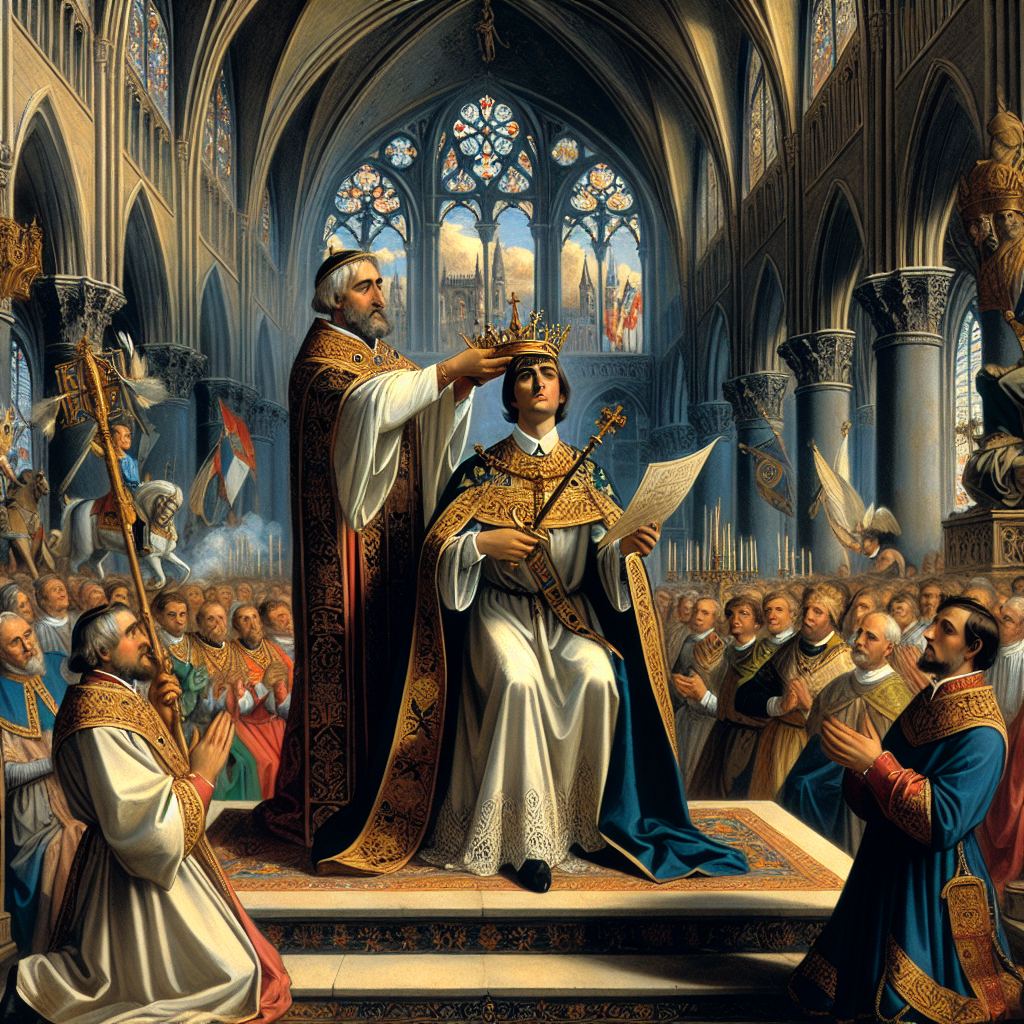Paris is well worth a mass
One's faith in exchange for the French crown

Henry of Navarre/Bourbon is crowned as Henry IV of France - AI-generated image
"Paris is well worth a Mass." Most of us have heard this phrase at least once, linked to the idea of making a sacrifice (big or small) to achieve a goal. But what circumstances gave rise to this saying? To understand, we need to go back to the so-called "Wars of Religion" that tore Europe apart in the 15th and 16th centuries following the Counter-Reformation. In France, in particular, conflicts between Huguenots (Protestants) and Catholics had spiraled into a wave of killings and violence affecting not only the common people but also the nobility and the royal family. After the premature death of Henry II of Valois in 1559, his wife, Catherine de' Medici, found herself steering a kingdom religiously split in half, given also the incapacity of her son, Charles IX, to govern (he too died young in 1574), succeeded by his equally inept brother, Henry III.
At this point, two other Henrys came to prominence: Henry of Bourbon, King of Navarre and leader of the Protestant faction, and Henry of Guise, head of the Catholics and Grand Master of France. Both laid claims to the throne bearing their name, leading to what would be known as the "War of the Three Henrys." In 1585, Henry III withdrew concessions to the Huguenots, making Henry of Navarre's claims void (and leading to his excommunication by Pope Sixtus V). But this did not discourage Bourbon, who, thanks to his military skill, won significant victories against the Catholic League (led by Guise and Valois). Later, the king, concerned about the excessive influence of the Guise family over the crown, had Henry of Guise killed and met with Henry of Bourbon to form an alliance against the Catholic League in April 1589.
That same year, Henry III was assassinated by a Dominican friar, projecting Henry of Navarre to the French throne as the only direct heir. But for Henry IV of Bourbon (the first king of this dynasty), one last obstacle remained: religion. Henry was a Protestant and could not rule a Catholic country. So, in 1593, in the Basilica of Saint-Denis, he converted to Catholicism, reportedly saying, "Paris is well worth a Mass" (though, mistakenly, this phrase was attributed to him only years after the event).
Carlo Capra, Storia Moderna 1492-1848, 4th edition, Le Monnier, 2021
Corrado Vivanti, Le guerre di religione nel Cinquecento, Laterza, 2011
2025-02-07
Salvatore Ciccarello
